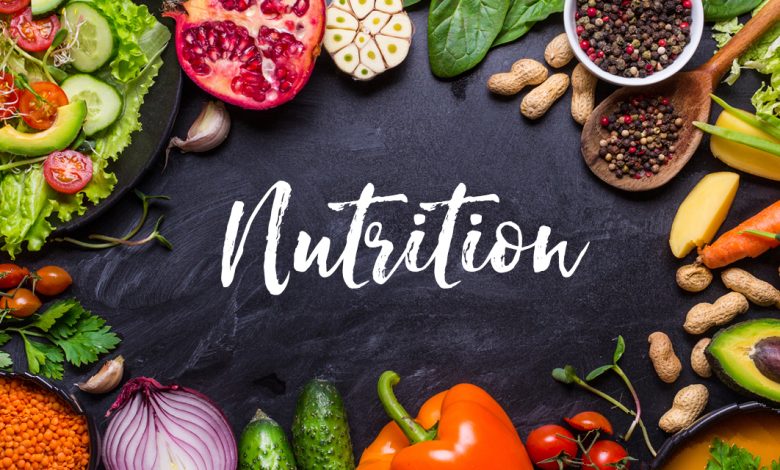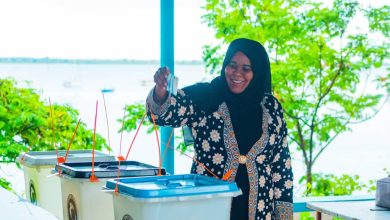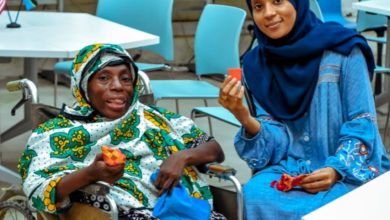With good nutrition, future workforce is assured

DAR ES SALAAM: GOOD nutrition is not only a pillar of good health but also a driving force for economic growth within communities.
Here, a well-nourished population is healthier, more productive, and better equipped to contribute to the workforce.
When individuals, particularly children, receive adequate nutrition from an early age, they develop stronger cognitive abilities and physical stamina, enabling them to perform better in school and later secure skilled employment.
This translates into a more capable labor force that can support industries, entrepreneurship and innovation, ultimately boosting the community’s overall productivity.
However improved nutrition reduces the economic burden caused by preventable illnesses.
Malnutrition and related health conditions often lead to higher medical expenses, reduced working hours, and premature mortality all of which drain household and national resources.
When communities prioritize balanced diets and access to diverse foods, they reduce the prevalence of such conditions, saving money that can instead be invested in education, small businesses, and infrastructure.
Healthier families are more financially stable, better able to support local markets and less dependent on costly social assistance programs.
Moreover, nutrition has a direct impact on agricultural and food-related economies and communities that understand and value nutrition tend to invest in producing diverse, nutrient-rich crops rather than focusing solely on high-yield staples.
This diversification not only supports better health but also creates new market opportunities for farmers, traders and food processors.
By promoting a variety of nutritious foods, communities can open doors for valueadded products, boost rural incomes, and strengthen local economies through sustainable food systems.
In this way, nutrition becomes both a health investment and an engine of economic transformation for any society worldwide.
In Mbeya City, nutrition has long been a silent crisis hiding in plain sight. For years, the city’s markets have brimmed with fresh produce, yet malnutrition has persisted among its youngest citizens while diet-related diseases have crept into adult lives.
Speaking to nutrition campaign in Mbeya city recently the WeCare Executive Director Ms Elizabeth Thobias said a paradox has taken hold, the same urban setting that offers an array of foods is also home to families who lack the knowledge or sometimes the means to eat well.
She said children under five have faced stunted growth from undernutrition, and adults have been increasingly diagnosed with non-communicable diseases linked to overnutrition, such as diabetes and high blood pressure.
“The underlying challenge is more than just food availability, it is about understanding what makes a healthy, balanced diet and how to achieve it daily,” she explained.
ALSO READ: RC Mwassa calls for increased awareness on good nutrition
She said it is against this backdrop that the “Lishe Yangu Kesho Yangu, Mbeya Kijani Afya Imara campaign emerged, which literally means “My Nutrition, My Future; Green Mbeya, Strong Health,” the initiative set out to break the cycle of poor eating habits and health misinformation.
She said the project is implemented by We Care Foundation in partnership with HELVETAS under the Inclusive Cities for Nutrition (IC4N) project, the campaign dared to take a fresh approach that swapped the traditional village gatherings for the buzzing world of digital conversations.
“We wanted to reach people where they already are on their phones. Digital platforms allow flexibility. People can learn in their own time, ask questions freely, and get direct answers from nutritionists they might never meet in person.”
According to her, the choice of platform was strategic. WhatsApp, already a daily communication tool for thousands in Mbeya, would become the classroom for this community nutrition drive.
She said for sixty days, from early June to mid-July 2025, the campaign quietly unfolded on screens across the city.
She said the campaign did not shout from loudspeakers or pull crowds into community halls; instead, it appeared as messages, posters, videos, and audio clips arriving directly into the palms of participants’ hands.
She said a total of 3,489 people joined the WhatsApp learning groups some newly recruited, others drawn from existing community groups.
She said the project was conducted through social Medias, Radios, TVs and newspaper both digital.
She said in those 60 days of the campaign a total of 339,599 people were participated and came with positive deliberations in the campaign.
“Participants were trained on food groups, food preparation and handling, balancing diet and meal planning”, she explained.
She said qualified and competent nutritionists, noncommunicable disease experts, group organizers, community health care workers and public health specialists presented the topics.
“With involvement of politicians, journalists and community leaders to assist on issues, that requires policy changes and community awareness,” she said, adding, “Through these digital gatherings, participants engaged in weekly lessons on food groups, meal planning, balanced diets, and even cooking demonstrations focused on complementary feeding for children,”.
She clarified that while the digital platform formed the heart of the campaign, its reach extended far beyond smartphones.
“Three radio stations Bomba FM, Mbeya FM and Baraka FM broadcasted nutrition segments to an estimated audience of over 336,000 listeners,” she said.
Officiating the campaign Mbeya Regional Commissioner praised the effort as “a great innovation to use digital platforms to spread health information, especially nutrition,” Mr Malisa said the region is facing many nutritional challenges, so education to the community via digital means is a good idea.
“If it brings impact, I encourage it to be rolled out to other areas,” he noted The Mbeya City’s nutritionist Itika Festo speaking on behalf of the City Director, echoed this sentiment, noting that while physical nutrition campaigns have been effective in the past, adding a digital component offers a powerful way to reach more people.
She said the aim was not simply to distribute information but to change behavior helping residents move from knowing what’s healthy to actually eating healthy.
She said the campaign managed to document some success stories from the group interactions where most of the participants saw that mode of teaching health information about nutrition on WhatsApp group.
ALSO READ: If nutrition builds nations, are we building or breaking?
She said as the best mode that has given them time to interact with nutritionists and health professionals that they get the chance to ask question direct and get answers on time and freely.
The Senior Project Officer from HELVETAS in Mbeya region said HELVETAS is the international nongovernmental organization in Tanzania that have joined forces to implement a food systems initiative through the Inclusive Cities for Nutrition (IC4N) project.
She said the IC4N project is an urban food systems initiative under the city-to-city cooperation (C2CC) between the city of Zurich represented by the department for urban development and the city of Mbeya.
She said through that project HELVETAS implements nutrition campaigns both physical and digitally to enable urban consumers in Mbeya city to be sensitized so as to demand healthy and diverse diets and change their consumption behavior and practices related to food and Nutrition





